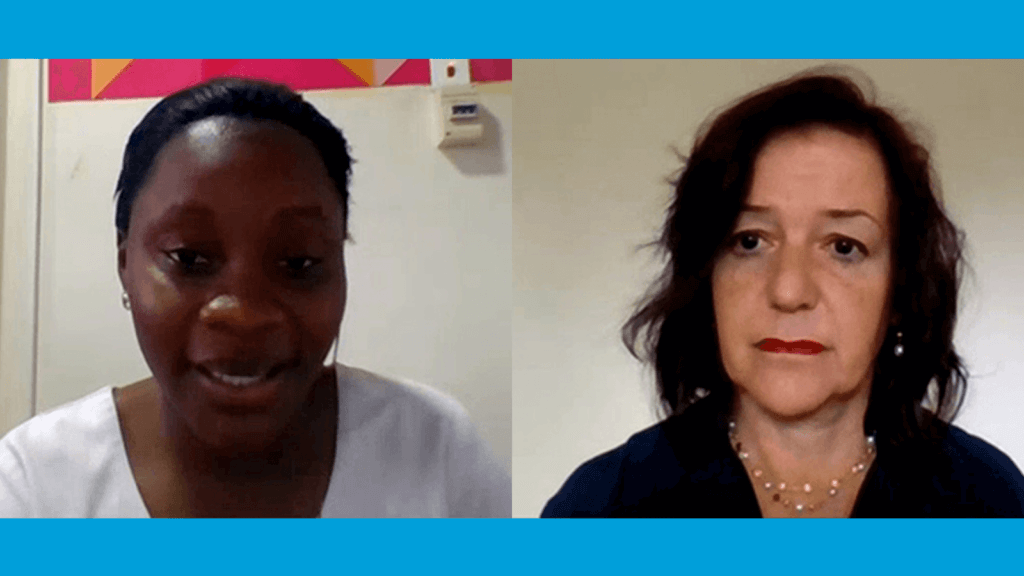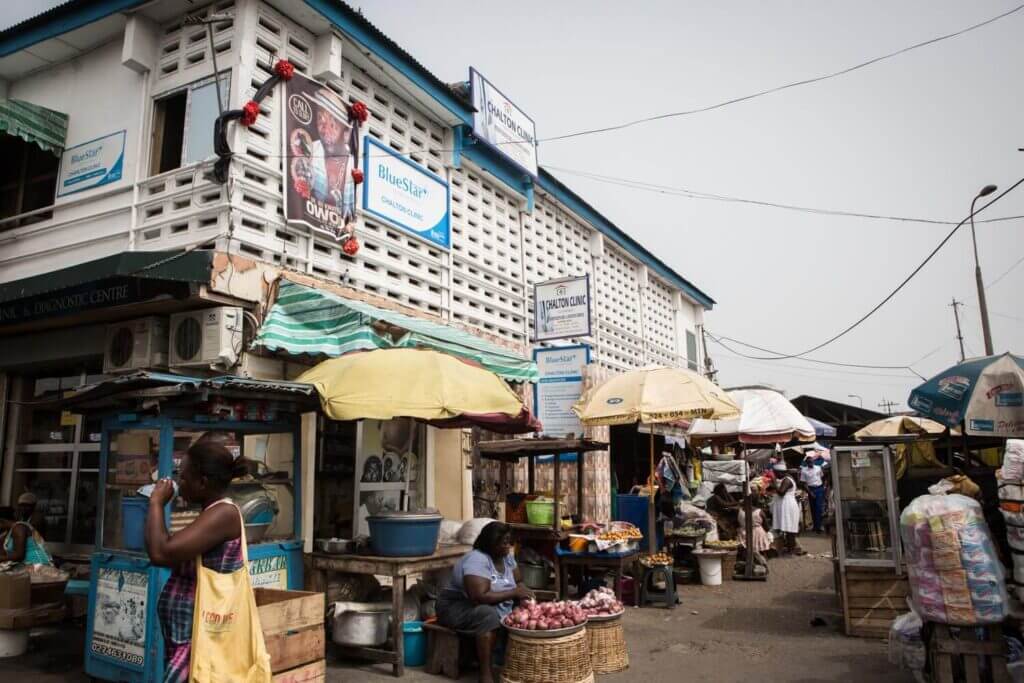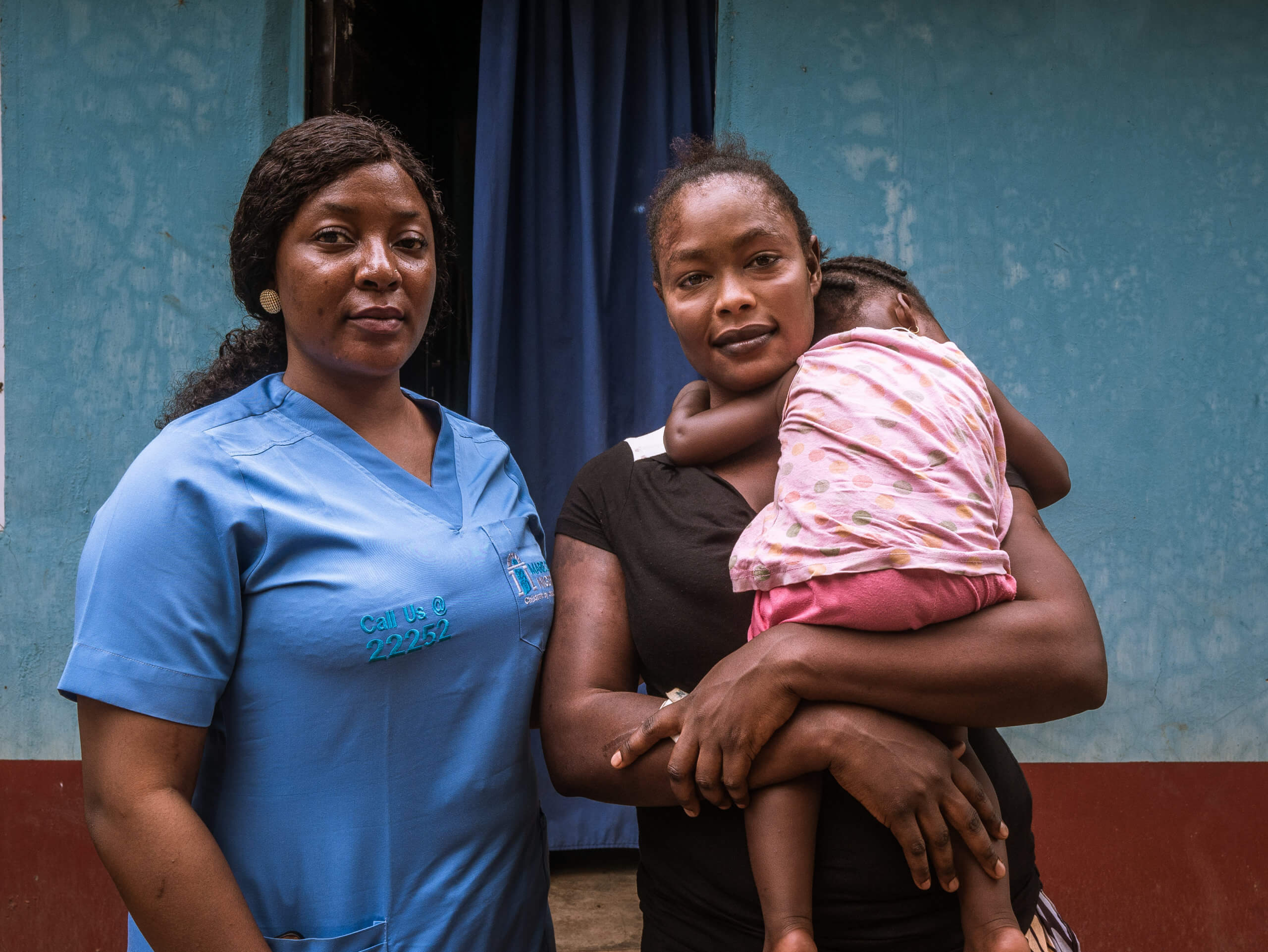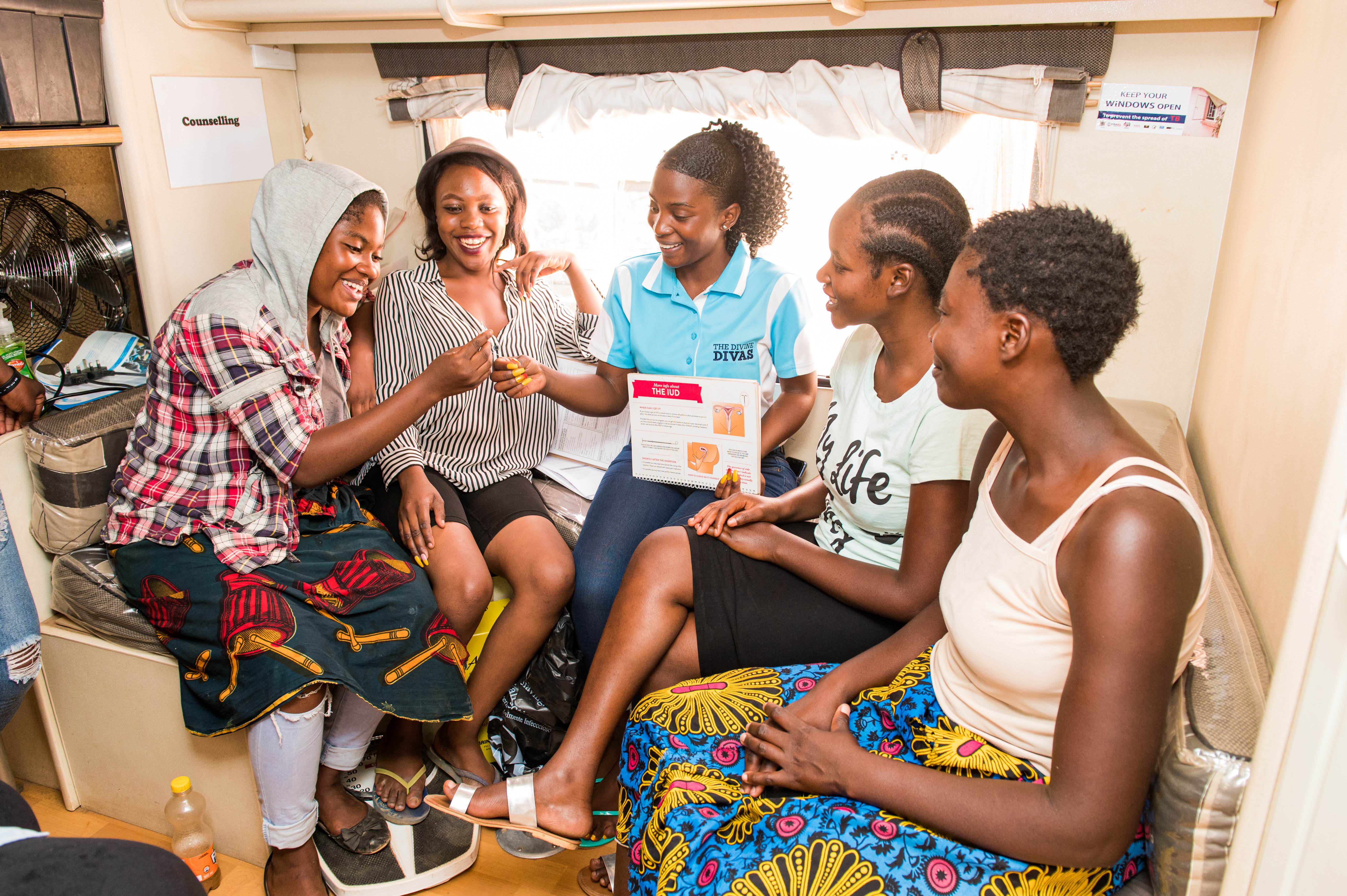Two abortion providers share their stories
“When women have an unplanned pregnancy, their life is put on hold. We press the reset button for them.”
To mark Abortion Provider Appreciation Day, we spoke to two abortion providers in different parts of the world about their experiences. Angela from Ghana and Caroline from England both work for MSI Reproductive Choices. Chatting together online for the first time they swapped stories and discovered that while the challenges they face are sometimes very different, their passion for abortion care brings them together.
“Nine years ago, I was practicing as a midwife and a 16-year-old girl was brought in almost unconscious,” said Angela. “We did a pregnancy test and boom it was positive. The doctor suspected that there was a perforation. She died that day of septic abortion.”
Angela works as a center manager for MSI in Ghana, where although abortion is legally available, stigma and lack of information mean many women continue to resort to illegal and often unsafe abortions.
She said: “From that day, I knew that nobody needs to die because they don’t want a child. Nobody needs to die because they are pregnant and don’t want to be. Nobody has a right to judge what someone does with their life.”
Angela’s story struck a chord with Caroline, who works as the clinical director for MSI Reproductive Choices in the UK where abortion has been legal for over 50 years.
“My father was a surgeon and I didn’t know how he would feel when I was approached about working in abortion care, but he told me that the 1967 Abortion Act was the most important act that women have ever had. As a very junior doctor working in a poor part of London, he had seen women coming into the hospital who were very poorly after unsafe abortion. Many had peritonitis and needed hysterectomies. He had never forgotten this experience and is so proud of what I do.”

Since 1967, women in England have been able to access NHS-funded safe abortion care, but for many women and girls in Ghana the deciding factor in whether they are able to access safe care is money.
“At MSI, there is a waiver system for clients who can’t afford to pay,” says Angela “but if they are more than 12 weeks’ pregnant, we have to refer them to a hospital and we are not able to subsidize the cost. What is it like in England?”
Caroline explains: “If the patient has other medical conditions, we sometimes have to refer them. Because it’s the NHS they don’t have to pay, but there are so few centers that treat people over 14 weeks that often women have to travel long distances to get the treatment they require. For people in poverty or in rural areas this can be particularly difficult. The one thing that has changed for us is that during the pandemic the government issued a temporary approval to permit the home use of abortion pills, meaning women are now able to receive care much earlier in their pregnancy.”
In Ghana, meanwhile, strict lockdowns to reduce exposure to the virus have meant many women have been unable to access the contraception and safe abortion care they desperately need.
“It’s been tough,” said Angela. “During lockdown, the police and soldiers physically stopped people from moving. Between March and May, over 60% of our clients were not able to come for services. Some women couldn’t get to us and were forced to have children before they were ready. Others were so desperate they had an abortion anyway and anyhow they could and that is where the danger lies.

“Some people will never understand my reasons for providing abortion care, but the facts are there, and I won’t hide them. Even at church I don’t hide that I work for MSI. People from all walks of life opt for abortion, people who are midwives, lawyers, doctors, even pastors have abortions, so I have developed a tough skin for that part, and it is what has kept me moving.”
Caroline nods in agreement. “Part of our job working at MSI is to educate others. There are still a lot of myths and stigma around abortion and my role is to stand up and be counted and say: ‘I provide abortion care and I am really proud of what I do’.”
She turns to Angela. “What’s your favorite thing about your job?” Angela smiles. “I enjoy the part where women who walk in hopeless and afraid, leave with a glint of life in their eyes knowing that they can put their lives back together. Because of my job I get to be part of those stories.
“I feel joy that every woman who comes into our center has a place to go to, a place to feel safe and confident, because it’s difficult being a woman in Ghana, it’s difficult to walk into a center, because of the stigma around what we do. When they walk through our door it is our responsibility that they leave with confidence knowing their life can continue.”
“I totally agree,” said Caroline. “When women have an unplanned pregnancy, their life is put on hold. We press the reset button for them. There is a big myth that women regret abortion, but in my experience the vast majority of people that we see leave happy and relieved.
“We are there for women at a time of crisis and can help steer them through it. I would say to anyone considering going into abortion care that once you have done it, it is so fulfilling that everything else really pales into insignificance.”






